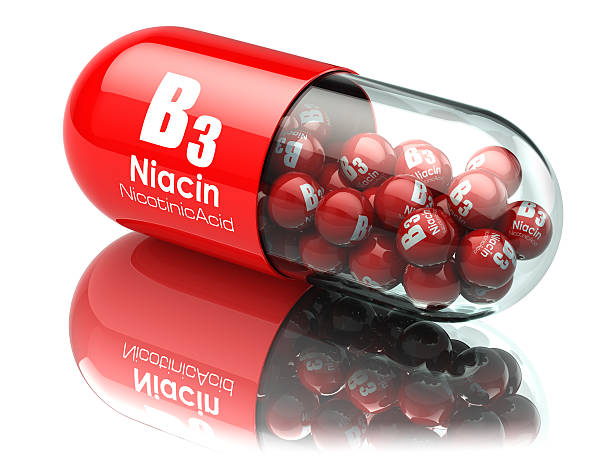Can you take niacin if you have high blood pressure?
Niacin might have an additive effect when you take blood pressure drugs, herbs or supplements. This could increase your risk of low blood pressure (hypotension).
Does niacin flush lower blood pressure?
Small clinical trials of using niacin have shown it has significant blood pressure lowering effects in people with hypertension. Additionally, sudden lowering of blood pressure is described in the package insert of prescription niacin.
Also known as vitamin B-3, niacin occurs naturally in several widely-available foods, including fish, peanuts and sunflower seeds. Your body requires niacin for a number of functions, including producing hormones, improving circulation and decreasing the amount of cholesterol in your body. For this reason, heart patients often take niacin, and high blood pressure is often an accompanying condition to heart disease. Because niacin can cause some side effects to your high blood pressure, speak with your physician before you begin taking it.
Low Blood Pressure
Niacin can have a blood-pressure lowering effect on the body, which can be beneficial to your high blood pressure symptoms when taken in the correct dosage. However, high-dosages of niacin are associated with causing your blood pressure to dip too low. This can be dangerous because your tissues stop getting enough blood and oxygen to them. The recommended daily intake for niacin is 16 milligrams per day for adult males and 14 milligrams for adult females. However, dosages in excess of 50 milligrams are considered high, with the potential to cause side effects, and should only be taken under medical supervision.
Medication Interactions
Niacin is known to interact adversely with some blood pressure medications, particularly alpha-blockers that affect the smooth muscle in your veins. This is because niacin can heighten the effects of blood pressure medications, which can cause your blood pressure to dip too low. Always discuss potential medication interactions with your physician and pharmacist before taking niacin.
Niacin Flush
One of the most common side effects associated with niacin is the risk for niacin flush. This is because niacin can have a dilating effect on your blood vessels, causing them to open more widely when you take the medication. As a result, blood flows more quickly to your skin, causing you to experience symptoms like itching, redness, tingling and warmth, particularly on your face, arms and chest. This reaction can vary depending on the dosage you are taking and how pronounced your high blood pressure is. However, for some people, this reaction is so severe they cannot continue taking niacin. Because no-flush niacin products are available, talk to your physician if you experience uncomfortable flushing.
Organ Damage
While doses of niacin may have a beneficial effect on high blood pressure symptoms, it is possible to experience damage to the liver and stomach if you take high doses. This is because the liver is responsible for filtering niacin. If it cannot break down enough at a time, damage can occur. Niacin also can be irritating to the stomach lining, causing ulcers. If taking high niacin doses, your physician may monitor your liver and stomach health to ensure that no negative side effects are taking place.







